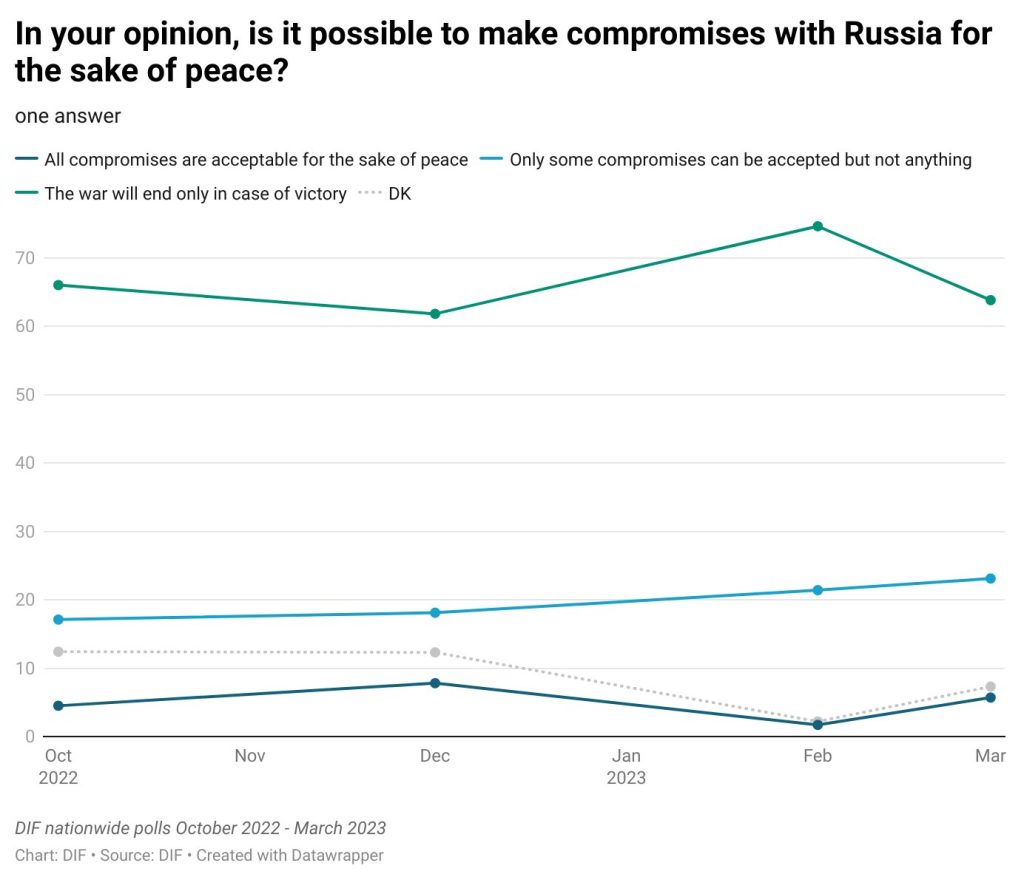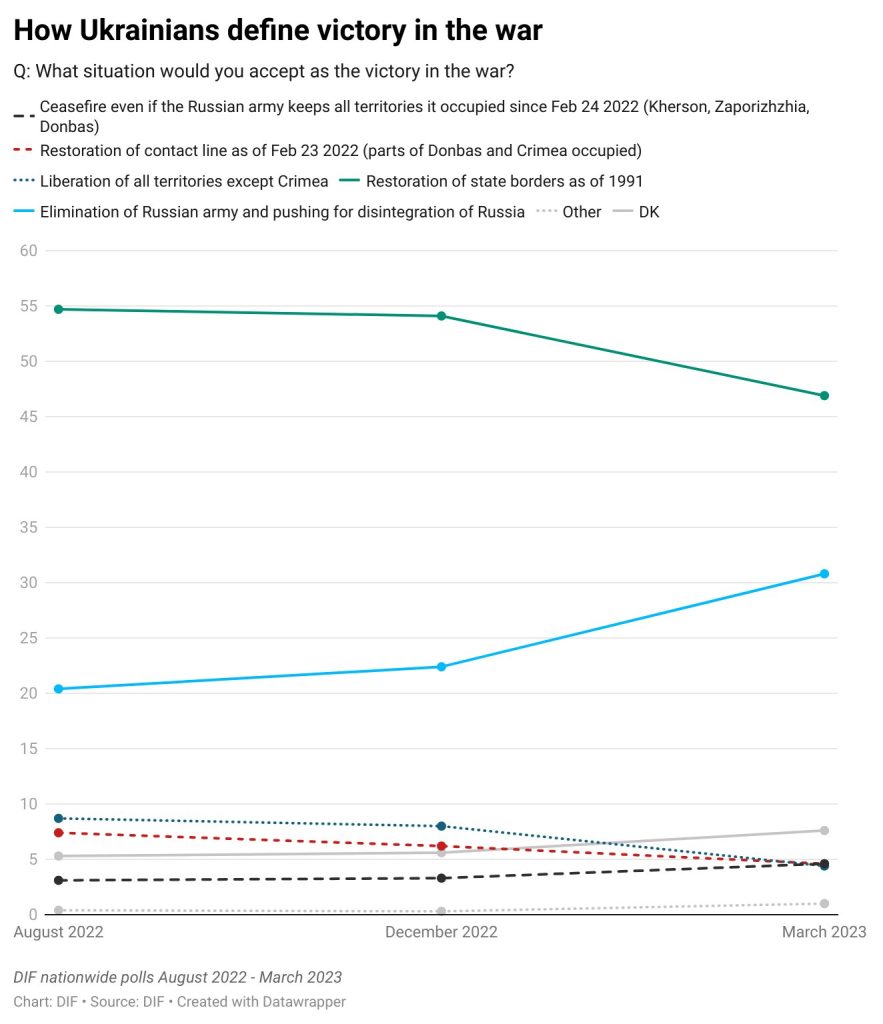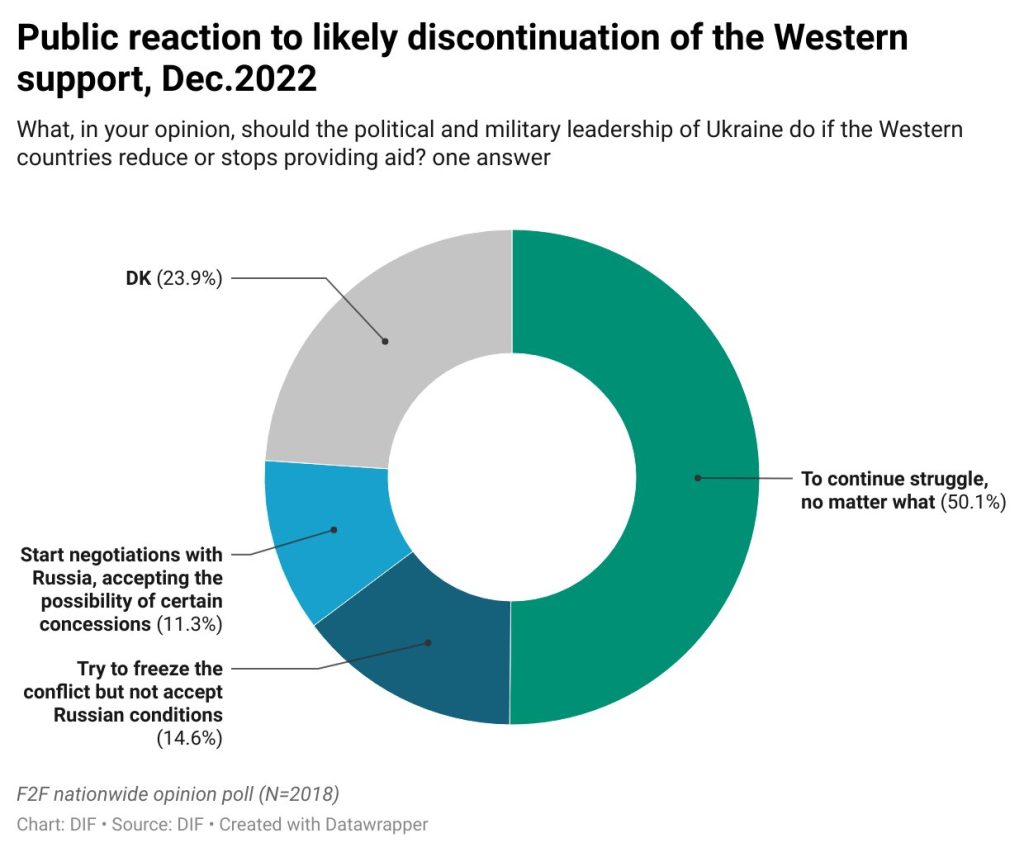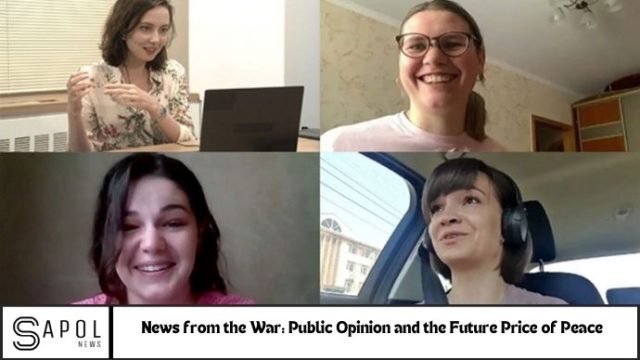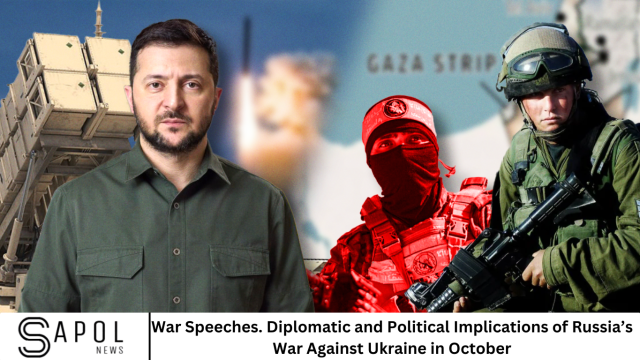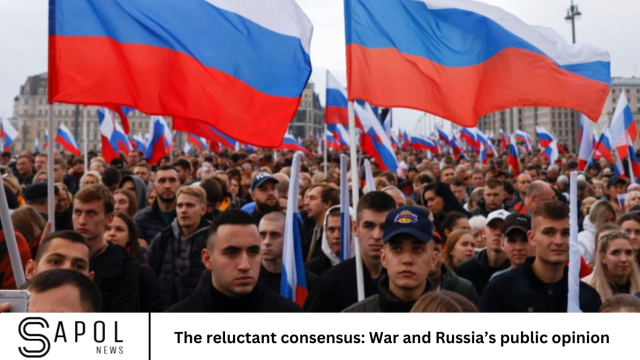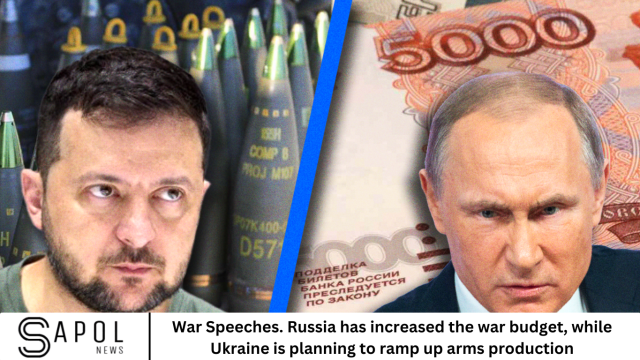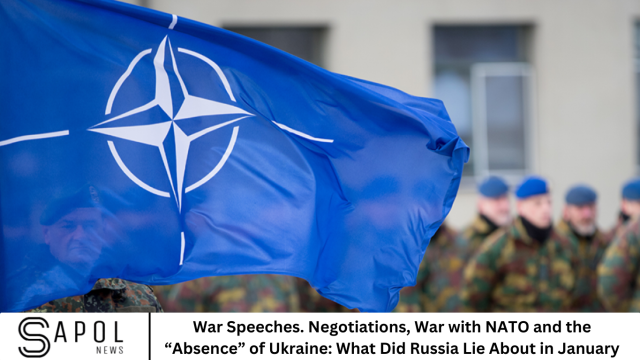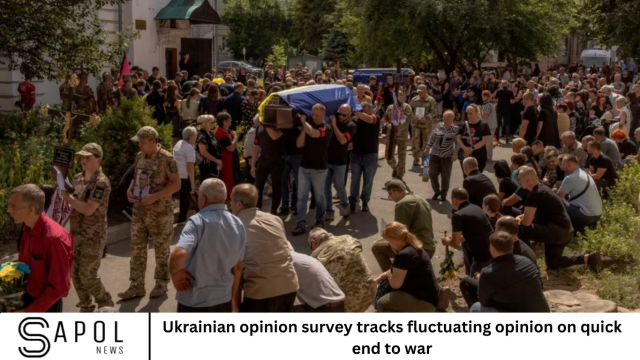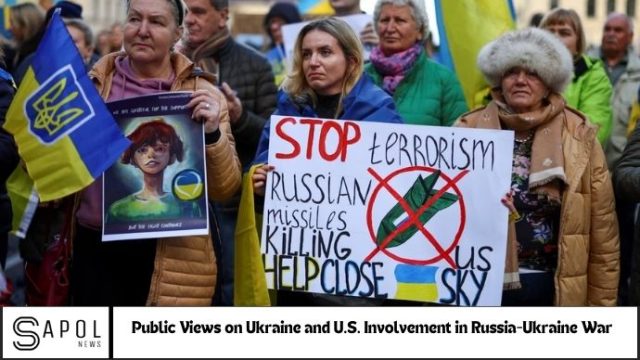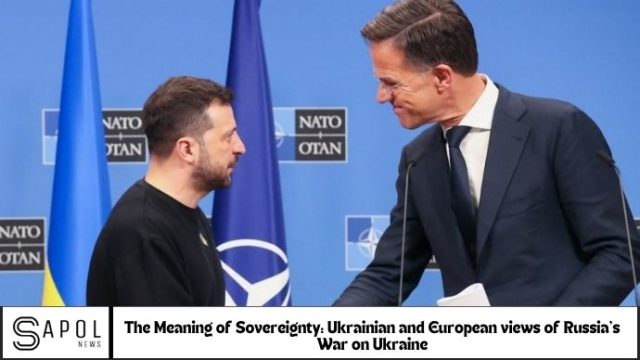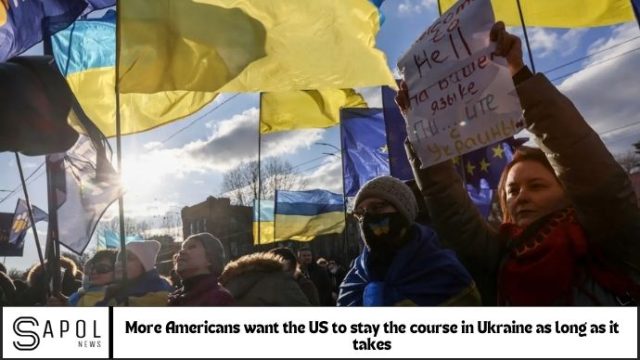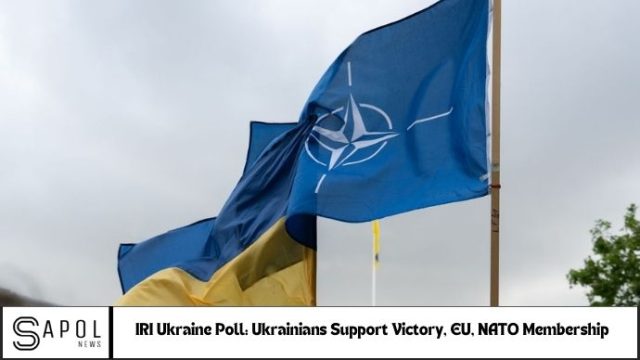October 2023 was rich in foreign policy events and geopolitical shifts. Lack of consensus in the USA about further support to Ukraine, election of a pro-Russian government in Slovakia, unbending pro-Kremlin policy in Hungary, and intensified hostilities in the Middle East may affect the agenda in the Russia-Ukraine war.
At the same time, military support to Ukraine remains unchanged. Today, it predominantly focuses on the reinforcement of air defense, with account for threats to Ukraine’s energy sector.
Ukraine is trying to reach a fair end to the war by promoting our own “peace formula”.
Russia does not show any willingness to stop military invasion but continues to seize Ukrainian lands. Russia targeted their foreign effort to reduce support to Ukraine and search for new allies. Kremlin puts a stake on the protracted war, global instability, and fatigue of the West from Ukraine. All of it has to send a signal for more decisive action from international community to stop the key source of global destabilization.
Ukraine preparing for the “worst ever winter in history” and scaling its own “peace formula”
In October, Ukraine continued to prepare for possible missile strikes at energy infrastructure. Kyiv is certain that Russia who last year attacked about 70 major energy facilities and caused damage for almost USD 9 bln, will make another attempt to destroy Ukraine’s energy infrastructure. This position is shared by the EU and NATO. Thus, the NATO Secretary General, Jens Stoltenberg, believes that Putin is preparing to use winter as weapons, again. He wants to target the energy system and the gas infrastructure of Ukraine. according to Ukrainian and British intelligence, Russians are trying to accumulate the resources for that: Moscow has not been using missiles for attacks for some time now, to target Ukrainian civilian and military infrastructure, but they mostly use drones. However, according to estimates the Defence Express, from May to September, 2023, Russia launched almost 600 cruise missiles at Ukraine.
In order to prepare for the “worst ever winter,” Ukraine and partners reinforce energy infrastructure and air defense. According to The Economist, within the first component Ukraine produced and ordered 100 high voltage transformers to replace the destroyed units. Most of them are stored in Poland and Romania. In parallel, UK are training Ukrainian engineers to protect the energy system. Azerbaijan, Japan, Germany, USA, and EU provided to Ukraine either equipment (transformers, solar panels, etc.) or financial assistance for at least USD 650 mln to restore the energy infrastructure.
Moreover, Ukrainian private energy company DTEK anticipates this winter to be more difficult than last year because of more intense shelling, thus investing the unprecedented UAH 20 bln into the winterization for 2023/24. The investment was made into the repairs of TTPs, extraction of coal, oil, and gas. In addition, because of the last year’s shelling, Ukrainian energy system has lower backup capacity. That is why energy sector also expects to rely on the reinforced air defense.
The reinforcement of air defense was made a key priority, among others, during the recent meeting of the Ukraine Defense Group (Ramstein format) on October, 11, in Brussels. Following the meeting, Ukraine will receive additional air defense systems Patriot and IRIS-T from Germany, and 6 Hawk systems from Spain. In addition, it was reported that Ukraine will be able to rent air defense systems for winter season from several countries. In total, following the recent Ramstein, our country will be allocated with USD 500 mln worth military assistance. The packages include 155 mm and 105 mm artillery shells, high precision aircraft munition, anti-drone systems, armored vehicles, small arms, etc.
In October, Ukraine also received from the USA the ATACMS missiles designed for the range of up to 160 km. Shortly after, the Ukrainian Army struck the airfields in the occupied cities of Berdyansk and Luhansk, where they hit 9 russian helicopters, the air defense system, and runways. Besides, Ukraine made and agreement with Romania about the fast track training program of Ukrainian pilots for F-16.
Another significant process is to promote Ukrainian Peace Formula. Thus, on October, 28–29, a meeting took place on Malta among foreign policy and national security advisers about the implementation of Ukraine-suggested plan to end the war and establish lasting peace. It was the third meeting following the encounters in Copenhagen (Denmark) and Jeddah (Saudi Arabia) earlier this year. In general, the event was attended by diplomats from 66 countries, which is ab. 30% more than during the previous meeting in Jeddah. According to President Volodymyr Zelensky, it shows that the Ukrainian Peace Formula is going global as the meeting had representatives from all continents, including Africa, Asia, and Latin America. Interestingly enough, but Armenia joined the meeting for the first time, as they got disillusioned about Russia as an ally. Therefore, they are trying to shift the focus of their foreign policy towards the West.
Malta meeting participants were presented the developments on 5 key positions. When implemented, they will contribute to the establishment of sustainable, just, and comprehensive peace. They talked about nuclear and radiation security, food security, energy security, the release of all captured and deported persons, the restoration of Ukraine’s territorial integrity and global order.
For example, to restore territorial integrity of Ukraine, they suggested the following:
to reform the UN Security Council and restrict the veto power for its permanent members;
to enhance the role of the International Criminal Court and recognize its jurisdiction and decisions;
to create an early prevention system about actions compromising sovereignty and territorial integrity of states.
Russia used HAMAS attack on Israel to discredit Ukraine. Slovakia and Hungary play along the aggressor.
Early last month, the HAMAS Palestinian group guerrillas orchestrated a massive attack against Israel that appalled the world with its cruelty. At the same time, in line with their regular line, Kremlin tried to benefit from the conflict. Thus, in the first conversation with the Israeli Prime Minister after the guerilla attack, Vladimir Putin said that the RF is allegedly taking steps to “facilitate in normalizing the situation and prevent any further escalation between Israel and HAMAS fighters.” Regardless, Russia later tried to promote a resolution in the UN Security Council that ignores HAMAS terrorism, and also suggested amendments to other resolutions. At the same time, russia’s permanent representative in the Council, Vasily Nebenzya, told that the conflict in Israel is beneficial for the USA and their defense industry.
In addition, Russia accused Ukraine of the fact that Western weapons land in the hands of HAMAS fighters. To confirm that, Kremlin transferred to the terrorists the weapons seized in Ukraine, and then shared fake allegations for the allegedly regular sales of western weapons to terrorists. They claimed that because the Ukrainian authorities are corrupt, military assistance is spreading around the world and gets into black markets.
The war in Israel was used by Russia as another pretext to accuse official Washington of neglecting conflicts in the Middle east with the focus shifted to Ukraine.
Another highly discussed topic of last month was the continued assistance to Ukraine from the USA. Thus, on October, 20, Joe Biden addressed the Congress with a request for almost USD 105 bln to finance the assistance to Ukraine, Israel, Taiwan, and security of U.S. borders. At the same time, a big share of the budget (over USD 61 bln) was planned for the assistance to our country.
A day before, the U.S. President addressed the nation and called on the Congress to show unity in the matter of assisting Ukraine, and called this moment a turning point, a “battle between global democracies and autocracies.” He also reiterated that the money spent is the “smart investment that will bring dividends to U.S. security for many generations to come.”
Unfortunately, despite the huge effort of the White House, the assistance package proposed by Biden has not been adopted yet. Moreover, there is no understanding about when it could possibly be adopted, and whether it would be adopted at all. On the one hand, the U.S. political environment lacks sufficient agreement about the combination of assistance packages for Ukraine and Israel. On the other hand, USA has not adopted the final budget. At the same time, the possibility of the shutdown is growing every day. It will directly affect support to Ukraine. However, Ukraine’s Foreign Minister, Dmytro Kuleba, is rather optimistic about the continued support to our state.
Nevertheless, it looks like there is one less partner state willing to provide weapons to Ukraine. Thus, in the end of October, Slovakia adopted a new composition of the government led by the Smer-SD party leader, Robert Fico. The new Prime Minister, the same as many members of his Cabinet, is known for some anti-Ukrainian statements in the past. Upon his coming to power, he predictably said that the “new Slovakian government would not support Ukraine in the military needs, and will rather focus on humanitarian assistance.”
Slovakian government leader also said he was not going to vote in the EU for “any sanctions” against Russia without impact assessment for the EU MS,and also told about corruption in Ukraine.
Notably, in October, an overt enemy of Ukraine, Hungary’s Prime Minister, Viktor Orban, met Vladimir Putin in China, and shook his hand. Moreover, Hungary’s Foreign Minister, Peter Szijjarto, had his second visit in a year to Belarus, allegedly to “maintain the communication channels.” In addition, Orban said that Ukraine would not win in the front, and also compared Hungary’s membership in the EU with the Soviet occupation.
Despite that, Kremlin risks losing a partner in another part of the world – Armenia. National Assembly of Armenia passed a draft law on the ratification of Rome Statute. Therefore, Armenia will have to enforce the arrest warrant for Vladimir Putin. Furthermore, Armenian Prime Minister, Nikol Pashinyan, said his state was ready to the rapprochement with the European Union.
In conclusion, we must highlight that in the end of October, Foreign Ministers of Central Asia states, such as Kazakhstan, Kirgizstan, Tajikistan, Turkmenistan, and Uzbekistan, agreed to continue the cooperation with the EU MS to combat russia’s attempts to circumvent sanctions. Growing cooperation in this area may send a serious blow at the Russian military and defense industry.
Strategy of Russian “Victory”: Cheap Russians and Global Instability
In contrast, Kremlin does not reject its imperialistic aspirations and they are ready to invest increasingly more human, political, and economic resources.
Last month showed that Russia is not capable of reaching just peace, and the war has now become a mode of survival for the dictatorship regime. Because of internal repressions, support of militarist attitudes inside the country, and internal propaganda to Russian elites, they still manage to maintain the overall public support for the invasion into Ukraine.
According to the survey of a Russian think tank Levada Center, as few as 34% of Russians support the cessation of war with the occupied territories to be returned to Ukraine. Hence, all official statements of Russian government about the alleged readiness for peaceful resolution of the war imply at least territorial losses for Ukraine.
Reaching the goals of the so-called “special operation” through agreements would be the most beneficial scenario for the Kremlin. However, Ukrainian society is not ready to come to terms with the arbitrary violation of international law and multiple crimes against humanity committed in Ukraine by Russian troops. It remains a priority for Moscow to keep the seized Ukrainian territories, despite the human loss.
Kremlin evaluates the lives of Russian citizen as cheap. That is why crossing a psychological threshold of 300,000 killed citizens in October failed to yield the wanted results. Even the Chief Commander of the Armed Forces of Ukraine, Valeriy Zaluzhnyi, admitted that he was mistaken to rely on draining Russian troops. Moscow pays no regard to the losses. It can be confirmed by the “cannon fodder” assaults at Avdiyivka, where the aggressor lost at least a brigade, without major gains.
No one is surprised by the new evidence to executing Russian soldiers for attempts to retreat under the fire of Ukrainian artillery shelling. Moreover, Russian authorities expand mobilization plans but mostly due to contract-based service.
Kremlin is ready to announce a new wave of mobilization but is still hesitant about doing it, given the social and political settings, such as the presidential elections next spring.
Increased numbers of Russian soldiers are ensured due to recruiting to contract-based service the vulnerable social groups (migrants, bankrupt individuals, debtors, unemployed persons, etc.), women, mercenaries from other countries, and “volunteers” to the Redut PMC, effectively replacing the Wagner PMC. As of today, Russia managed to accumulate 400,000 soldiers in Ukraine.
At the same time, Russian foreign policy line primarily focuses on reducing support to Ukraine. at the Valdaj club meeting, Vladimir Putin openly stated he expected when the West would stop supporting Ukraine, because in that case, our country would allegedly have “only one week to live”. Russian propagandists use all possible international and internal platforms to discredit Ukraine and promote messages claiming that supplies of western weapons to Ukraine would not change the situation.
Besides, trying to reduce further military support to Ukraine from the West, Russian Federation is more often referring to nuclear weapons. In October, Russia revoked the ratification of the Test Ban Treaty, and conducted military training of strategic deterrence forces. Russian authorities even resorted to direct threats of nuclear confrontation claiming that would deny all chances for survival for Russia’s adversaries. However, in the settings of sanctions, Russia must think about survival and search for resources to be able to continue the war. The aggressor has already spent USD 167 bln for the war, and the defense expenses for 2024 will be about 6% of GDP.
The blown-up military budget of the RF in the settings of sanctions will likely aggravate the pressure from inflation and the economic situation. The government already faces the need to keep the rouble from dropping, such as obliging individual major exporters to sell foreign currency proceeds.
Such conditions, and also international isolation, make Russia re-orient their foreign policy effort to partnerships with Iran, KNDR, China, and Belarus. The aggressor is also trying to maintain close relations with countries that are members of such associations as SCO, EUEU, BRICS, CIS.
Deepening relations between Russia and the KNDR is especially alarming. In addition to the confirmed supply of Korean munition to Russia, Pyongyang may receive from Moscow advanced technologies related to the intercontinental ballistic missiles, submarines with nuclear ballistic missiles, and military reconnaissance satellites, which jeopardizes stability and security in the Indo-Pacific region, in Europe, and all over the world.
In parallel, Russia is using Belarus to increase the production of munitions, intensifies relations with Iran to obtain and manufacture drones on their territory, deepens economic relations with China. Russia’s volume of trade with China has been growing. Although Beijing is guided by their own interests in the first place, the relations help Russian authorities adapt to international pressure.
At the same time, Kremlin continues to present Russia as a separate civilization to be the core for a new world order and which requires protection from external enemies.
According to the Russian position, the essence of the “Ukrainian crisis” is not about any territorial disputes but about the principles for building global agenda. Russian authorities invested much effort into dividing global community, to cause more chaos and lack of understanding. Building a new geopolitical order against the advantage of the “collective West” is a strategic plan of the dictatorship.
With regard to current foreign policy dynamics, current regime in Russia is becoming increasingly more dangerous for global security. The democratic world must make timely critical decisions, although they are not always easy to make, in order to reduce Russia’s presence in external platforms and eventually ensure its strategic defeat.
Frequently Asked Question
What are the main political implications of Russia’s war against Ukraine in October 2024?
The war has significantly impacted global political dynamics, creating deep divides between Russia and Western countries. Western nations, including NATO, continue to provide Ukraine with military and economic support. This has led to a broader geopolitical rivalry, primarily between Russia and the U.S.-led Western bloc, resulting in sanctions, diplomatic isolation for Russia, and growing tensions in international relations.
How have Russia’s speeches affected global diplomacy?
Russian speeches often portray the conflict as a defense of national sovereignty against Western encroachment, using rhetoric to justify military actions. This has been a tool for galvanizing domestic support, but it has further strained relations with the West, diminishing diplomatic avenues. The U.N. and other international organizations have been divided, with some supporting Ukraine and others remaining neutral or aligning with Russia.
What diplomatic efforts have been made to end the war?
Diplomatic talks have been limited and have often failed to yield a lasting ceasefire or peace agreement. High-level summits and back-channel negotiations have taken place, involving intermediaries like Turkey and France, but Russia’s terms, including the recognition of Crimea as part of Russia, remain a major point of contention for Ukraine and its allies.
How has the war affected Russia’s relationships with other countries?
Russia’s relationship with many European and Western countries has soured, as these nations impose harsh sanctions and provide military support to Ukraine. However, Russia has strengthened ties with China, India, and other countries that maintain a more neutral or supportive stance towards Moscow. These relationships have been crucial in mitigating the impact of Western sanctions.
What role does NATO play in the conflict, and how do Russian speeches target it?
NATO has been a central actor in providing Ukraine with weapons, intelligence, and economic aid, which Russia views as a direct threat. Russian speeches often criticize NATO expansion and frame the conflict as a defense against NATO’s supposed encirclement of Russia. This rhetoric is used to justify aggressive military tactics and heighten nationalistic sentiments within Russia.
What are the economic consequences of the war on Russia and the global economy?
The war has led to severe sanctions on Russia, isolating it economically from much of the world, reducing its access to markets, and significantly impacting its energy exports. The global economy has also been affected by disruptions in energy supplies, inflation, and food security concerns due to the war’s impact on grain exports from Ukraine and Russia.
How does public opinion in Russia and Ukraine influence their governments’ positions?
In Russia, government speeches are designed to maintain public support for the war by framing it as necessary for national security. However, internal dissent has increased as the war progresses. In Ukraine, public opinion is strongly supportive of defending territorial integrity, which drives the government’s commitment to resist Russian advances. International pressure and public opinion also influence both governments’ diplomatic and military decisions.
Conclusion
The ongoing conflict between Russia and Ukraine, particularly in October 2024, has had profound diplomatic and political consequences globally. Russia’s speeches and justifications for the war continue to shape its domestic and international relations, reinforcing nationalistic sentiment and portraying the conflict as a defense against Western influence. On the other hand, the international community remains deeply divided, with Western nations offering unwavering support to Ukraine, while Russia strengthens ties with countries that have adopted a more neutral or supportive stance.
Efforts at diplomacy have yielded limited results, with Russia’s demands, such as the recognition of Crimea, remaining non-negotiable for Ukraine. The war has further strained Russia’s relationships with Europe and the U.S., while NATO’s role has intensified the geopolitical rivalry. Meanwhile, the global economy has felt the impact of sanctions, energy disruptions, and food security challenges, which exacerbate the global fallout from the conflict.
Ultimately, the war continues to influence not only the political landscapes of Russia and Ukraine but also the broader global order, with lasting effects on international diplomacy, security, and economic stability. The path forward remains uncertain, and the need for effective diplomatic solutions to de-escalate the conflict is more critical than ever.
